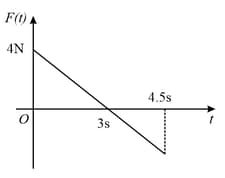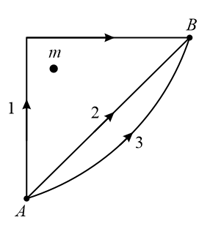Embibe Experts Solutions for Chapter: Work, Energy and Power, Exercise 2: Exercise 2
Embibe Experts Physics Solutions for Exercise - Embibe Experts Solutions for Chapter: Work, Energy and Power, Exercise 2: Exercise 2
Attempt the free practice questions on Chapter 2: Work, Energy and Power, Exercise 2: Exercise 2 with hints and solutions to strengthen your understanding. Comprehensive Guide to TS EAMCET Physics. Other applicable Exams - JEE Main, VITEEE, SRM JEE, MHT-CET, K-CET, BITSAT, AMU & Other State Engg. Entrance Exams solutions are prepared by Experienced Embibe Experts.
Questions from Embibe Experts Solutions for Chapter: Work, Energy and Power, Exercise 2: Exercise 2 with Hints & Solutions
The potential energy of a particle free to move along the -axis is given by . The total mechanical energy of the particle is . Then, the maximum speed (in ) is
Ten litre of water per second is lifted from a well through and delivered with a velocity of . If , then the power of the motor is
A block of mass is moving with a speed of on a smooth surface. It strikes another mass of and then they move together as a single body. The energy loss during the collision is
An athlete in the Olympic game covers a distance of in . His kinetic energy can be estimated to be in the range
A block of mass is free to move along the -axis. It is at rest and from onwards, it is subjected to a time-dependent force in the direction. The force varies with as shown in the figure. The kinetic energy of the block after is

The potential energy function for the force between two atoms in a diatomic molecule is approximately given by, , where and are constants and is the distance between the atoms. If the dissociation energy of the molecule is , is
If and represent the work done in moving a particle from to along three different paths and , respectively (as shown), in the gravitational field of a point mass , find the correct relation between and .

At time , particle starts moving along the -axis. If its kinetic energy increases uniformly with time , the net force acting on it must be proportional to
